

Prof Lipman: Surely he cannot be serious?
I read with interest the commentary filed by Professor Lipman, and published on your most informative site, concerning the ongoing controversies surrounding the outcome of the Madrid Executive Council election for a new UNWTO Secretary General and the possibility of that outcome being challenged during the forthcoming General Assembly in China.
I was disappointed, to say the least, by the Professor’s statement that “unless someone can prove that there was anything illegal about this election, all of the rest is hype”.
Surely he cannot be serious? Granted, it is unlikely that there was anything “illegal” about the election, or about the measures deployed by the various candidates in order to drum up votes. The rules themselves are so vague and, absent an agreed Code of Ethics applicable to such contests, it seems clear that all candidates had a pretty free hand to do what they wanted to secure the 17 votes required for victory.
From what I have read on this website, however, and from what has appeared in or on other media outlets, we are not talking about the legality of the process and of what unfolded in Madrid last May, but rather of the moral integrity of that process and, therefore, of the moral acceptability of the outcome it produced.
I was not in Madrid for the vote, but I know and have been in communication with a number of people who were, including some who currently work within the UNWTO Secretariat and all of whom have expressed grave misgivings about that process and about the suitability or aptness of the candidate who emerged as the Secretary General-elect – i.e. to oversee global tourism for the coming four years.
That the process followed inflicted a degree of prejudice upon all candidates is undeniable.
I speak of course of the fact that the Council was not given any opportunity to engage in confidential discussion about the presentations or the strategic visions or the qualifications and suitability of any of the five candidates before the start of the election process itself. This ‘confidential discussion’ was an integral component of the agreed election process and was included on the Agenda for the specific purpose of allowing the 33-member Council to compare and contrast the differing attributes of the candidates in order for them to arrive at a more informed position. Not all Member States arrived in Madrid with the decision already made – certainly not a decision beyond the first round – and, as it turned out, the first round result seemed to throw a number of cats among the pigeons. Such a discussion on the substance and vision of each candidate may well have assisted to settle those pigeons.
The question is whether the decision to sidestep the ‘confidential discussion’ was deliberate maneuvered by a complicit Secretariat or, was it just incompetence or carelessness? Where was the Legal Counsel?
The fact that that discussion never took place served to bring prejudice to all candidates.
From what I have observed and read, it appears that considerably more prejudice was inflicted upon the candidate from Zimbabwe – which clearly explains why he has been the prime mover in efforts to bring a spotlight to bear upon the Madrid process and its, for him (and many others) somewhat unsavory outcome.
The antics of the candidate from Seychelles even after his government had withdrawn its support for him, and the degree of tolerance and accommodation shown by the Secretariat towards those antics was simply beyond acceptable. His address to the Council – unprecedented and certainly damaging to the Zimbabwean – should not have been allowed or, should only have been allowed after the voting process had taken place.
Again, was this the action of a complicit, conniving Secretariat, or simply further incompetence? Again, where was the Legal Counsel to advise the Secretariat or the Chairperson of the Council of the likely prejudice the angry and embittered man from Seychelles might cast upon the integrity of the election which was to follow almost immediately upon his address ?
I think it would be a mistake, and a grave one at that, to dismiss Mr. Mzembi’s actions and words since that time as merely those of a ‘sore loser’.
His ‘Open Letter’ and the substance of the interviews he has given since May reflect something far deeper than ‘sour grapes’.
They reflect a deep affection for the UNWTO and acknowledgment of the role it plays and must continue to play in promoting global tourism and, through the movement of people, promoting greater understanding between peoples and cultures.
They reflect a deep pride in the progress achieved by the UNWTO – especially under the stewardship of Taleb Rifai – but an even deeper concern that the Secretary General-elect is ill-equipped to assume control of global tourism or to adequately defend let alone advance the gains achieved so far.
They reflect a deep-seated concern that lingering questions about the integrity of the election process and about the outcome stretch far beyond the Jacaranda-lined avenues of Harare and will continue to swirl around the Secretary General elect well after endorsement by the General Assembly – if indeed such endorsement does take place.
The maneuvers used by the Secretary General-elect to garner the 17 votes required to win the Madrid process – including inviting selected Council members to a soccer game on the eve of the election – are now well-known. Illegal ? Hardly. Morally acceptable? Again, hardly. Similarly, having someone within the Council chamber live-streaming the voting process via Skype to his mobile phone whilst, as a candidate, he waited outside – Illegal? Probably not. Morally acceptable? Absolutely not.
Does think kind of thing falls within what Professor Lipman refers to as “the norm”? Or does it stretch an acceptable norm to something rather seedy? I and, it seems, many others think so and that, inevitably, that seediness has contaminated the outcome of the Madrid process and will, from the very outset, contaminate the incoming Secretary Generalship if the General Assembly opts to endorse the Madrid outcome.
What might happen in China is somewhat unpredictable. Most will probably be hoping that, all the “hype” aside, the Secretary General-elect will simply be endorsed by acclamation and that all the unpleasantness which has followed in the wake of the Madrid election will, like a morning mist, simply evaporate.
Others and I count myself among them, will be hoping that UNWTO Members will acknowledge the “hype” which continues to swirl around the Madrid outcome and will, at the very least, order that the Assembly should vote on the proposal by the Executive Council to endorse that outcome. If the Secretary General-elect musters a two-thirds majority vote in his favor, then good and well, the healing process will have begun and both he and the broader membership can move ahead with some degree of confidence.
What, though, will happen if the two-thirds majority vote fails to materialize? Is there a Plan B? The Professor – who is very familiar with the UNWTO – says that the “decision will be sent back to the Executive Council” and that there are Rules in place to cover such an eventuality. I am not as familiar with UNWTO’s Rules as is Professor Lipman but my understanding is that the existing Rules do not, in fact, provide any clear guidance – apart from referring such an eventuality back to the Council. And then what? Rifai is due to step down at the end of December. Will the Council be able to determine the way forward by then? Unlikely I think. Which means what, then, in terms of leadership of the UNWTO until there is a clear way ahead?
Where I do absolutely agree with professor Lipman is when he suggests – and, in so doing, acknowledges the gaps in the UNWTO Rule Book which gave us the very unsatisfactory process and undeniably tainted outcome in Madrid – “an objective review and modernisation of the election process (…) followed by Action”.
The Professor highlights a number of “fundamental questions” which need to be addressed, including “the absence of a professional selection/vetting system, the vagaries around national endorsement and state financial support, the fairness of running a “ticket” for a single position, the maximum age of candidates, the support of (geographical)blocs, the promises of Secretariat positions, and the like”.
He is correct, but he doesn’t go far enough.
Mr. Mzembi has made more or less the same proposal, albeit in more colorful language, but it is no less true or compelling. If I read him correctly, he is challenging the outcome of Madrid on the basis of principle and because he feels that the UNWTO deserves better than it got in that process.
The General Assembly would be well advised, for the sake of its own credibility and for the credibility of the man elected by the Executive Council in May, to heed Mzembi’s call for a vote. The General Assembly would be equally well advised to heed Professor Lipman’s advice, which echoes in many respects the proposals made by Mr Mzembi, in respect of an immediate, comprehensive review of existing Rules relating to elections and all associated matters.
Only by ordering a vote to confirm (or reject) the outcome of the Madrid process and only by thoroughly amending the Rules which produced that outcome, will the UNWTO be able to credibly put this matter behind it and allow the incoming Secretary General – again to quote Professor Lipman “whoever that is) – to focus on the enormous and important task ahead.
Jaime Paterson
Freelance Writer, Analyst, and Commentator
Dublin – Ireland
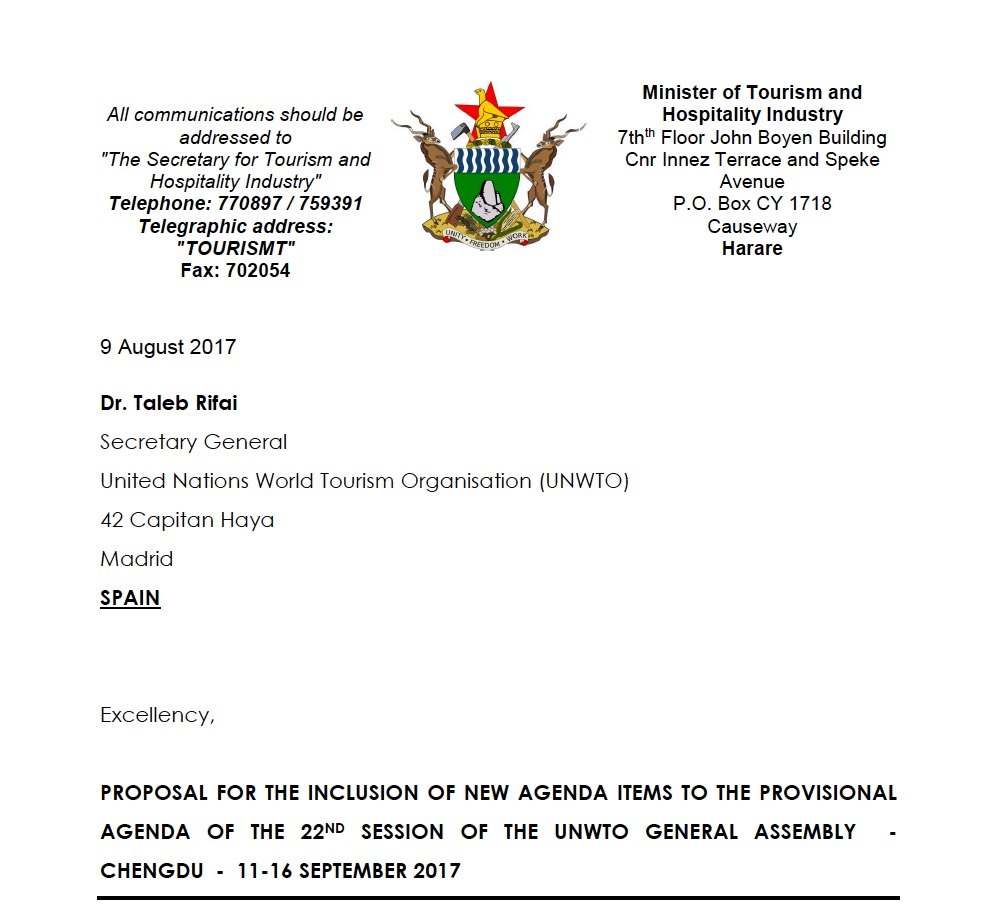
Mzembi submits details on why election was flawed and how to fix it
The response by the Hon. Walter Mzembi to his allegation of “flaws” in the election process for UNWTO Secretary General in May at the Executive Council meeting in Madrid reads like a crime story, and it may be one on the highest level.
Some call the Zimbabwe minister an army of one because he was the only one officially pushing for the issue to be discussed at the upcoming General Assembly in Madrid.
WorldTourismWire publisher Juergen Steinmetz had been in touch with many travel and tourism leaders over the last 2 months. Despite some isolated and anonymous criticism on the eTN and WorldTourismWire reporting, there has been wide and truly overwhelming support on eTN’s and WorldTourismWire investigation and push to investigate the UNWTO Secretary General election process.
Support was voiced by numerous ministers of tourism from various parts of the world. It was voiced by some of the 5 candidates that competed in Madrid, and it was voiced by delegates from UNWTO member countries, as well as by many members of the private industry and UNWTO affiliated members.
There was wide interest by major mainstream media, and many may be standing by to catch up on the story in Chengdu.
It’s fair to say, there has been a wide support for the action facilitated by the ZImbabwe Minister – but every single supporter whispered and told the eTN journalists, he or she was speaking “off the record”, and “don’t write my name.”
On June 13 Mzembi broke his silence and his army of one built an army of silent followers from all over the world. The gloves will be off in Chengdu, when the full assembly has to confirm or not confirm the nominee for the job, Ambassador Zurab Pololikashvili from Georgia.
On July 19 Dr. Walter Mzembi dropped a bomb shell when he requested an agenda point to be added to the upcoming UNWTO General Assembly in Chengdu China in September. Dr. Taleb Rifai, the current Secretary General responded on July 29 to Mzembi and wrote: Any agenda item proposed by a Member of the Organisation (…) shall be accompanied by a report (…) that sets the framework for the debate and includes, as appropriate, requests on actions to be taken by the General Assembly in the form of recommendations or decisions, serving as a resource and reference for delegations to seek instructions and prepare their position on the matter”.
On Wednesday, August 9, Mzembi responded in details and with the requested report. He laid out what he wanted to discuss in Chengdu, and what should be changed. Mzembi is not for a man who only criticizes, he always comes up with workable solutions.
His response is nothing but sensational and judging on all the details this writer knows, it seems to be true. It takes courage and leadership to bring this forward, but regardless of the outcome, it will may the beginning of a better and more critical UNWTO membership.eTurboNews published both details submitted by the Zimbabwe minister.
- Click here to download the PDF letter by the Zimbabwe Ministry of Tourism outlying the flawed election process.
- Click here to download the PDF letter by the ZImbabwe Ministry of Tourrism outlying the change proposed for the UNWTO Rules of procedure
eTurboNews published both papers submitted by Zimbabwe:
- Click here to read what Mzembi thinks went flawed during the election process for UNWTO Secretary General
- Click here to read how Mzembi wants to change the Rules of UNWTO Procedure
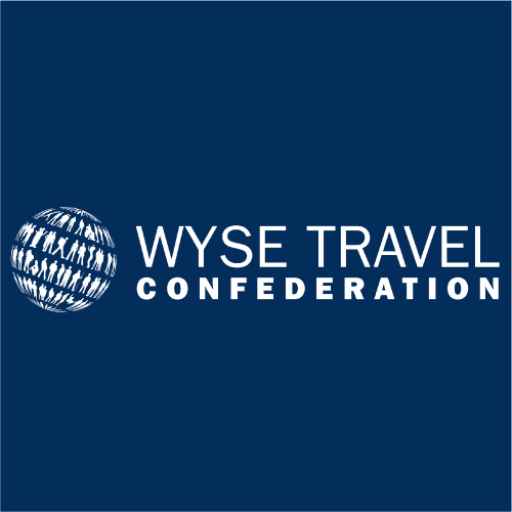
International Youth Day – Celebrating the Potential of Tourism to Empower Youth
The World Tourism Organization (UNWTO), Hilton and the WYSE Travel Confederation will join forces ahead of International Youth Day at the Youth General Assembly at the United Nations Headquarters to highlight tourism’s capacity to empower youth.
The New York event is part of the International Year of Sustainable Tourism for Development 2017 framework, and will focus on the tourism industry’s potential to create jobs, provide entrepreneurship opportunities, and deliver a more responsible tourism sector for today’s Youth.
Young people represent around 23% of the 1,235 million tourists travelling internationally each year. The event will discuss the contribution of this influential to world peace and a better future through sustainable tourism.
“Youth can be a powerful catalyst to advance the contribution of tourism to the Sustainable Development Goals, particularly Goal 8 on economic growth and jobs, and Goal 12 on sustainable consumption and production as they can lead a transformation into a more responsible way of travelling” said Sandra Carvao, Chief Communications at UNWTO.
Hilton and the International Youth Foundation plan to preview the latest Global Youth Wellbeing Index, revealing that young people are “plugged in,” and yet disconnected from vital skills, economic opportunities, local communities and governments. Reconnecting Youth is an urgent need at this moment in history when half of the world’s population is under 30.
“Our future depends on resilient and thriving societies, and this starts with young people. To help better understand the challenges facing Young people, Hilton collaborated with the International Youth Foundation to commission the Global Youth Wellbeing Index,” said Daniella Foster, Senior Director of Global Corporate Responsibility, Hilton. “To better equip today’s Youth for the workforce, Hilton has committed to opening our doors to one million young people by 2019. As of today, we are more than half way there.”
The Global Report on the Power of Youth Travel by UNWTO and the WYSE Travel Confederation shows that youth and student travel markets are increasingly important and resilient. It also concludes that youth travel spend more on local communities and thus represent a growing opportunity for socio-economic development.
The event will also highlight the role of tourism in the accomplishment of the SDGs, in particular for Youth, through job creation, entrepreneurship and social inclusion. It will also look into the future of tourism jobs and skills development.
Participants include leaders and influencers including:
- Sandra Carvao, Chief, Communications, UNWTO
- Daniella Foster, Senior Director of Global Corporate Responsibility, Hilton
- Russ Hedge, Representative of WYSE Travel Confederation and Hostelling International
- Susan Reichle, President, International Youth Foundation
- Kelley Louise, Executive Director, Travel SocialGood and Travel Blogger
- Shoaib Rizvi, Youth Assembly Awardee 2017
The Youth Assembly (YA) is a unique platform for fostering dialogue and generating partnerships between exceptional youth, civil society, the private sector, and the United Nations.
Session: “The Power of Youth: Making a Difference Through Sustainable Tourism”
Date: Friday, August 11
Time: 10:00am to 11:30am ET
Livestream: http://webtv.un.org/
Learn more about the Youth Assembly
Learn more about the International Year of Sustainable Tourism for Development
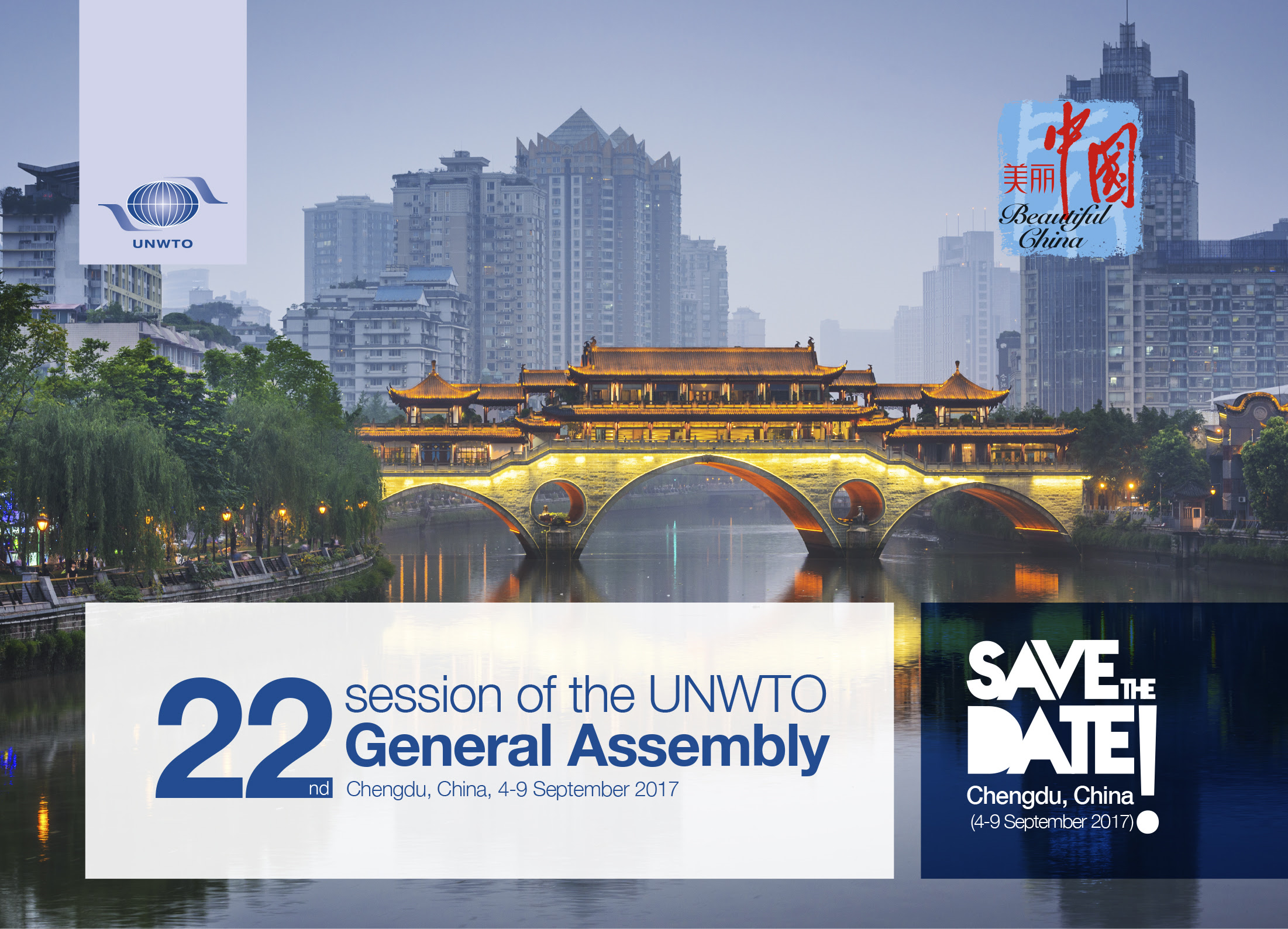
Peace, Tourism and China: UNWTO General Assembly, the election and the future of tourism
Threats made to global instability becoming louder and more serious. Mr. Song Jo Kim, Director of the National Tourism Administration in Pyongyan, the Democratic People’s Republic of Korea, also known as North Korea, is due to attend, together with delegates from 155 countries, the upcoming General Assembly of the World Tourism Organization (UNWTO) scheduled to take place in Chengdu, China, on September 11-16, 2017.
This year, the General Assembly of the World Tourism Organization could very well become the most important one ever with an extended mission for dialogue and peace.
Having such a conference in a country like China makes this venue close to perfect this year.
It is not the white pandas that delegates will be invited to admire when they are in Chengdu, but rather it is the chance to get the global travel and tourism community leadership together under one roof. Global tourism ministers and officials will have a dialogue on tourism and possibly more. This is what will make the potential of the importance of this meeting in China significant. Tourism is integrated into geo-political issues.
Without any argument, China is bound to become the largest of everything in tourism when it comes to numbers. The country will be the largest in outbound tourism, the largest in inbound tourism, the largest in spending, the largest in air traffic, the largest in the meeting and incentive industry.
This tourism superpower has a chance – and an obligation – to the world to become a catalyst for a discussion for peace that is so needed in today’s world.
There is even more at stake in China this year. The UN World Tourism Organization (UNWT)O has elected a new nominee to take over from one of the most respected tourism leaders the organization and the world has ever had – Dr. Taleb Rifai from Jordan. This nominee is Ambassador Zurab Pololikashvili from the Republic of Georgia. He will be in China with his prime minister, Giorgi Kvirikashvili, who many think was the true winner of Zurab’s nomination.
Zurab’s nomination for UNWTO Secretary General has become the center point of discussion, allegations, and whispers in the global travel and tourism community. This publication has extensively reported about this subject.
The person that will lead the World Tourism Organization through such upcoming difficult times has to, first and foremost, be above reproach himself. There simply cannot be any allegations or proof to cause doubts in his ability to carry out the work of this integral tourism position. He needs to be strong, outspoken, and a master of communication with high ethics. He needs to be able to work independently and separate from his Prime Minister and his foreign minister – and for the good of the world, not just his own country.
With all due respect, this truly is not how this nominee, Zurab Pololikashvili, has positioned himself. Allegations of vote buying, illegal wiretapping, and rule violations in the process of this election have overshadowed the entire election process after the fact.
The full UNWTO assembly of representatives that will meet in China needs to be solid, fair, and ethical when it confirms or does not confirm, this nominee.
The intervention by the Zimbabwe Minister of Tourism will show the importance of a needed reform. Delegates should not judge this outspoken minister by his country alone. They should appreciate him being the only one to take leadership when speaking up as a one man minority. It’s not about him, it’s about the industry every delegate will represent.
This meeting is also not about the Georgian Prime Minister who will be watching over the process, and it is not about the nominee Zurab or the very respectful Republic of Georgia. This is about the future of UNWTO, the future of world tourism, and possibly the future of human negotiation for peace through tourism.
China will have the difficult and important task of overseeing its options as the host for this meeting, and it must show true leadership. China is known to always act independently. Therefore, the hope is that China will have the fortitude to be resilient and stand up for what is right.
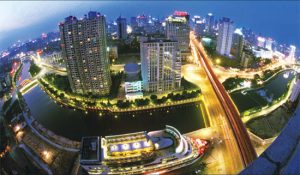
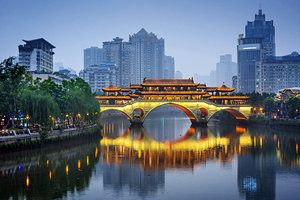
Chengdu is the best platform for the UNWTO to move forward out of this difficult internal and external situation, keeping the world of tourism with the respected status that it should have, with its head held high in the global community, and with the strength, support, and power to maneuver through storm clouds when it’s called for.
… and at the end of the meeting, tourism leaders should visit the Chengdu Research Base of Giant Panda Breeding and talk some more or enjoy a dinner in one of the excellent restaurants this city is also famous for. Chengdu is the capital of southwestern China’s Sichuan province. Chengdu’s history dates back to at least the 4th century B.C., when it served as capital for the Shu Kingdom. Artifacts from that dynasty are the focus of the Jinsha Site Museum.

World Tourism Day 2017 celebrated on the theme Sustainable Tourism – a Tool for Development
This year’s World Tourism Day, held on 27 September, will be focused on Sustainable Tourism – a Tool for Development. Celebrated in line with the 2017 International Year of Sustainable Tourism for Development, the Day will be dedicated to exploring the contribution of tourism to the Sustainable Development Goals (SDGs).
World Tourism Day has been celebrated since 1980 on September 27, the day in which the Statutes of the World Tourism Organization (UNWTO) entered into force. Peace and Dialogue, Energy, Accessibility, World Heritage and Water and Tourism have been some of the topics tackled on the 37 previous editions of World Tourism Day.
“Last year alone, 1.235 million travellers crossed international borders in one single year. By 2030, this 1.2 billion will become 1.8 billion. The question, as we celebrate World Tourism Day 2017, is how we can enable this powerful global transformative force, these 1.8 billion opportunities, to contribute to make this world a better place and to advance sustainable development in all its three pillars. This World Tourism Day, whenever you travel, wherever you travel, remember to respect nature, respect culture and respect your host,” said UNWTO Secretary-General Taleb Rifai.
The official celebrations of World Tourism Day 2017 will be held in Qatar, as decided by the UNWTO General Assembly. The event will be structured around two sessions, focused on ‘Tourism as a driver of economic growth’, and ‘Tourism and the Planet: committed to a greener future’. In addition, a high-level think tank will be conducted with the aim of opening the debate on the potential of the sector to enhance cultural preservation and mutual understanding.
On the Agenda will also be the presentation of the Qatar National Tourism Sector Strategy, which advances sustainable approaches. The initiative is aligned with the Qatar National Vision 2030, which focuses on Economic, Social and Human Development and prioritizes tourism as a catalyst to progress towards a more diversified economy.
Together with the events conducted in Qatar, the World Tourism Day will be celebrated across the globe. UNWTO calls upon the tourism community, including travellers, private sector, governments and civil society, to join the celebrations and share them at www.wtd.unwto.org
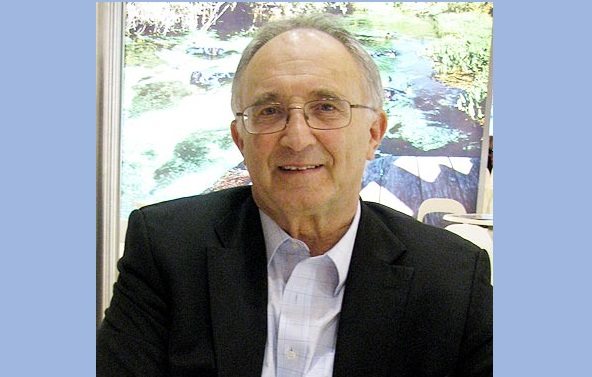
Prof. Geoffrey Lipman speaks out on UNWTO Secretary General Election
WorldTourismWire repeatedly reported about possible rule violation and illegal interferences in the election process of the UNWTO Secretary General. In this report Professor Geoffrey Lipman, a tourism veteran agrees with World Tourism Wire and confirms if anything illegal in this election can be proven, the UNWTO General Assembly would send the election back to the Executive Council. Should this happen, the organization will be able to reset easily, not hurriedly and pick up the process, exactly as its rules provide. The Secretariat is well able to support that.
Professor Geoffret Lipman is former Assistant Secretary General of UNWTO, first President of WTTC and Executive Director at IATA He has known and worked with at least 5 Secretary Generals, He is independent with no vested interest in any of the candidates’ campaigns.
Professor Lipman wrote:
I have watched with increasing concern the campaign to question the 2017 Secretary General election. I decided to weigh in, as a long-time observer of the organization – from outside and inside. I have been engaged, at many of its critical junctures for nearly 50 years, I remain a fan of UNWTO and totally independent of all the candidates. Indeed In an earlier comment to UNWTO wire I made the point that despite having been asked to support one friend, I wouldn’t – because my views would scarcely be relevant any more and why lose friends at this stage of life. Now I feel it’s time to add a different perspective to provide some degree of balance.
The essential point is that UNLESS SOMEONE CAN PROVE that there was anything illegal about this election, all of the rest is hype. The Chengdu Assembly should not be clouded by this.
My own observation over the past year is that the election generally followed the norms that have been established for the organization over the years: one still transitioning into the UN system, yet anxious to keep its traditional practices. I have known virtually all of the candidates – all meet the current qualification criteria.
I was present at the Madrid Executive Council and saw no evident irregularities – the post-election insinuations seem overplayed. One could look for fault at many levels – but the facts are that all candidates use established processes to shore up their positions or to secure votes in advance of and during the election. This has always been the case, it is the norm – and not just in UNWTO.
There are also many more fundamental questions that could be asked about those processes – the absence of a professional selection/vetting system, the vagaries around national endorsement and state financial support, the fairness of running a “ticket” for a single position, the maximum age of candidates, the support of blocks, the promises of secretariat positions and the like.
BUT now should not be the time to ask them – now should be time to move on.
And in the event that the Assembly exercises its right to reject the Executive Council recommendation – which has never happened to date – there are routine processes to cover this. The decision will be sent back to the Executive Council. Should this unlikely event happen, the organization will be able to reset easily, not hurriedly and pick up the process, exactly as its rules provide. The Secretariat is well able to support that.
What this surreal situation shows is that there is a good reason for an objective review and modernization of the election process, as well as a measured examination of the costs/consequences of a deeper integration into UN System norms. Followed by Action
This would be a great first project for the next Secretary General (who-ever that is) and the Executive Council.
Moreover, there are three caveats I would make.
First it should be done in full coordination with the new UN Secretary General’s Office, not left to UNWTO itself. This to avoid undue historical influence.
Second it should be closely aligned with the new UN Agenda for SDG implementation and UN System Reform, which has not seen much progress in the past decade – at least as regards the complex cross cutting travel & tourism sector.
Third it should reflect the existential reality of Climate Change. Our sector may well prove more exposed than any to this extreme weather, migration, bio-diversity, disaster inducing phenomenon. And we should build our responses into our institutions and programs while we still have the chance.
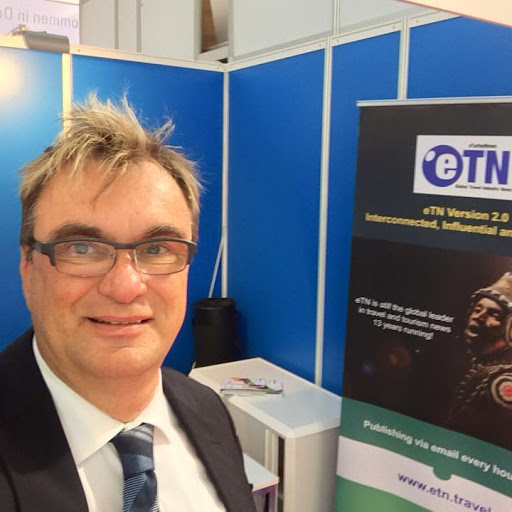
Give Ambassador Zurab a platform to respond to your stupid accusations
WorldTourismWire has been receiving many responses. They include an avalanche of praise and once in a while some criticism. Two out of many letters received today criticizing us:
One was submitted by a former employee at UNWTO. He or she told us today:
You may also want to look into the unethical practices…. You may want to seek out former UNWTO employees … to tell you he is not who he projects himself to be. (we left names and specific details out for right now)
A member of the Global Business Travel Association claiming he was from Zimbabwe was traced to Europe or Georgia told WorldTourismWire today.
Ambassador Zurab Pololikashvili is a very credible person and has all the relevant skills to take the UNWTO to higher levels without a problem. You are campaigning and doing PR for Mzembi and it’s seriously ridiculous. Playing unnecessary political games. Losers. Go hang!
Give Amb. Zurab a platform to respond to your stupid accusations.
Some of us have been involved in very high-level meetings and we get invited to expensive dinners, football matches etc, that is not vote buying, many of us after enjoying, we vote who ever we want.
You think all those people who attended the football match, are so broke they voted on being given a ticket??? you suck!!
RESPONSE:
Of course, WorldTourismWire would never think candidate or delegate are so broke not to afford a football ticket. But this is not the issue here.
We would love to have Ambassador Zurab Pololikashvili respond to us and utilize our platform.
We reached out to him ever since he became a delegate and when we did, we had no reason to suspect any issues with his candidacy.
We only received one response from ambassador Zurab Pololikashvili. The Georgian Embassy sent us a PDF file the multi step plan by the ambassador candidate.
The next day, on December 20, 2016 we published an article entitled:
Georgia reveals multi-step plan for UNWTO’s future (click)
All future requests for interviews were not responded to. We tried by email, letter, and phone. We also approached the Georgia stands at every single travel industry trade show eTN attended – no response.
Ambassador Zurab had never attended a press conference, nor any relevant public events or trade shows so we could have approached him for questions We would love to hear from you ambassador Zurab!
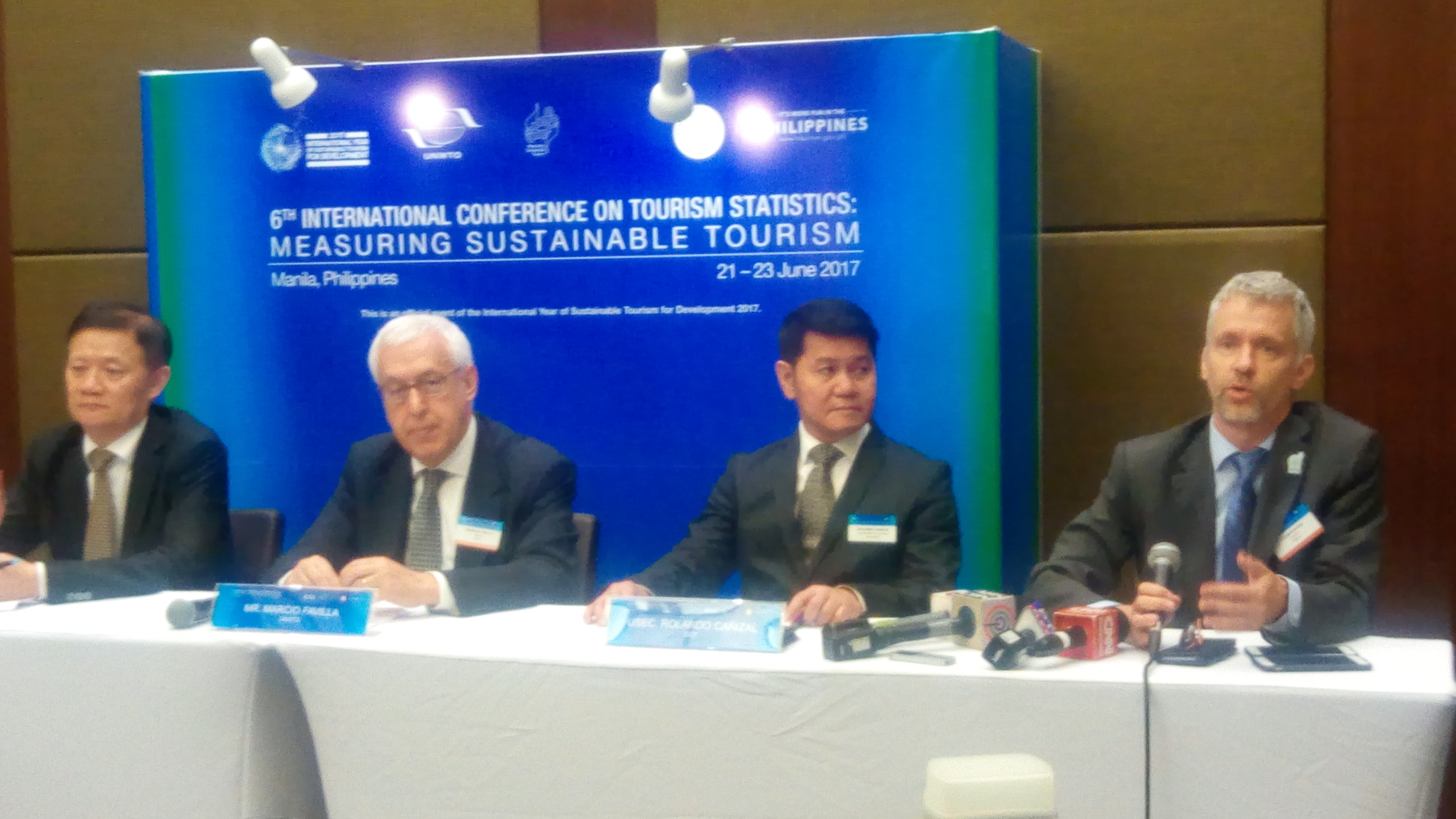
To UNWTO Executive Council members: There is no shame to correct your mistake
Tourism is directly related to international security, communication, and interaction between people. Tourism must have a seat at the global table, and the UN World Tourism Organization (UNWTO) is the platform for that within the United Nations. How can the leader of this UNWTO platform be elected by a group of country representatives that care more about getting tickets for a popular football game, are following the orders of their foreign minister, and perhaps therefore are not interested in a discussion and exchange, before voting someone into the highest UN official in the travel and tourism industry?
This is exactly what happened in Madrid during the last UNWTO Executive Council meeting, and it seems only one man is trying to correct it. This man is Dr. Walter Mzembi, the Minister of Tourism and Hospitality from what some say is the most politically-disliked countries – Zimbabwe.
What we should learn here is that it’s not about the country this man represents, it’s about the issue that has merit.
Worldtourismwire reported in detail about the football game delegates were invited to by the Georgian candidate. WorldTourismWire conducted a survey that overwhelmingly confirmed attending this football game as a voting delegate and accepting the invitation by a delegate seeking your vote, is a clear case of bribery.
All executive member countries – Angola, Azerbaijan, Bahamas, Bulgaria, China, Costa Rica, Croatia, Democratic Republic of the Congo, Ecuador, Egypt, France, Germany, Ghana, India, Iran (Islamic Republic of), Italy, Japan, Kenya, Mexico, Morocco, Mozambique, Peru, Portugal, Republic of Korea, Saudi Arabia, Serbia, Seychelles, Slovakia, South Africa, Spain, Thailand, Tunisia, and Zambia – were very much aware of controversial issues leading to the vote for a new UNWTO nominee.
During the restricted meeting established by rule so voting members of the Executive Council could discuss qualifications and the presentation of competing candidates the French delegate apparently said “We heard enough, let’s move to vote.” He wanted to skip a discussion on the presentation and qualification by candidates that competed for the UNWTO Secretary General post. Information received by eTN confirmed there was no formal motion and there was no second motion. Instead, there was silence by Executive Council delegates when the French candidate suggested voting without discussion because it was late. If this was true, it would have been simply disrespectful to not have a debate, especially after all the months of hard work these candidates put into the election. It was also clearly not following a proper protocol that a motion was not made and seconded to vote on whether the debate should be skipped in the first place.
The world needs leaders. Tourism ministers, especially those elected to sit on the UNWTO Executive Council, have a responsibility not only to their own country but to the global world of travel and tourism. To make matters worse, the same delegates at an earlier Executive Council meeting in Luxor, Egypt, voted to ban all recordings during the debate, so there would be no official record that this discussion ever took place. Maybe a good legal argument to investigate if such a rule of interpretation is actually allowed at a UN agency is in order.
To summarize, the nominee from Georgia, Zurab Pololikashvili, Ambassador of Georgia to the Kingdom of Spain, was elected without discussion of his presentation, and his qualifications were not questioned. The same nominee was allowed to invite Executive Council officials to a football game before the election meeting, and his embassy circulated tickets to this potential target audience for the nominee.
During the election process, there was no recording of the debate – a debate that in reality never took place, but the elected nominee attended and possibly influenced this restricted meeting via SKYPE from the hotel lobby of the Casa, which is clearly against the rules and possibly influenced the decision to not have a debate.
The world is going into unchartered times, and tourism needs leaders. The delegates of the Executive Council made a mistake to vote without debate and most of them didn’t know they were being watched on SKYPE by the Secretary General nominee.
UNWTO Secretary General candidates – Mr. Márcio Favilla of Brazil, Mr. Jaime Alberto Cabal Sanclemente of Colombia, Mrs. Young-shim Dho of the Republic of Korea, – must do the right thing and stand behind Walter Mzembi’s effort to not confirm Zurab in China. It’s not too late for the members of the Executive Council to quietly admit a mistake and urge their countries not to vote for Zurab.
This takes leadership, and it takes guts, and it would demonstrate to the world that the delegates are united in wanting to correct this error. It would bring this issue back to the Executive Council who would then have the chance to confirm or correct their original vote.
There is no shame in doing this, but it would be shameful and a disgrace for world tourism if the confirmation of the current nominee took place in Chengdu as if it was business as usual, no questions asked.
The expected pretense of the Georgian Prime Minister, Giorgi Kvirikashvili, should not influence world tourism leaders to not care about correcting a mistake.Kvirkashvili is scheduled to attend the upcoming UNWTO General Assembly in Chengdu China in September.
World peace is at stake, and tourism is a peace industry. Tourism must have its foundation on solid footing. Under the leadership of a duly elected new Secretary General the need to change the process and rules in UNWTO to avoid such an incident in the future is necessary.
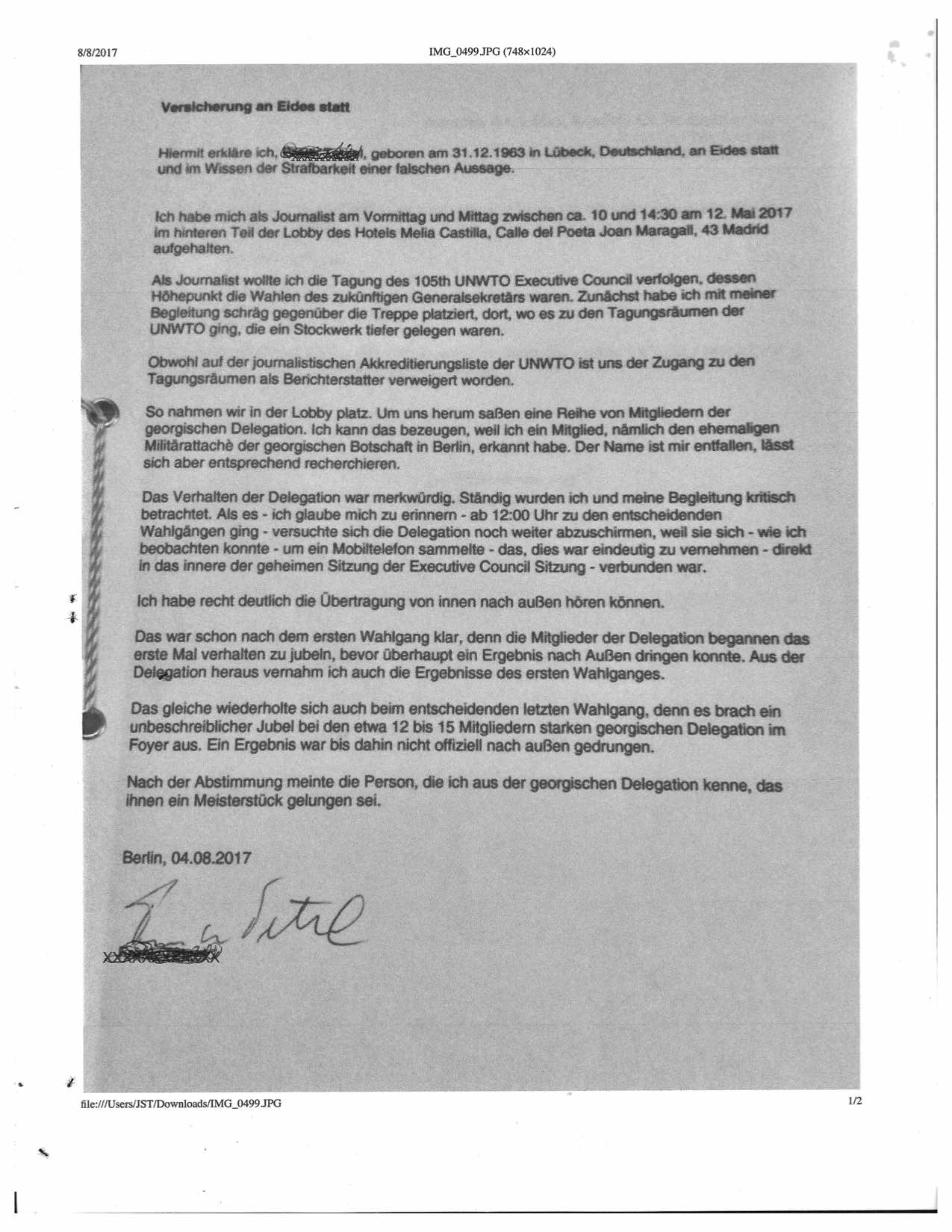
Sworn statement: UNWTO nominee Zurab Pololikashvili conspired to attend restricted election meeting
It was at the Meliá Castilla Hotel in Madrid on May 12, 2017 when a known German journalist for Huffington Post was in the lobby of the hotel. It was the day the UNWTO Executive committee elected a nominee for the position of the UNWTO Secretary General. According to the rules of procedure and calendar for the election of the Secretary General of the Organization for the period 2018-21, rule 5 (e) states: The election of one nominee by the Council shall be conducted, in accordance with Rule 29 of the Councils rules of Procedure, during a private meeting, part of which shall be a restrictive meeting as follows:
(i) discussion of candidates shall be conducted during a restrictive private meeting at which only voting delegations and interpreters shall be present; there shall be no written record and no tape recording of the discussions.
Delegates competing for the job made their presentation and previously presented their credentials and qualifications. Anyone would think the secret discussion among members of the executive council is important and will have a great influence on the final vote.
Out of obvious reasons delegates were not allowed to be part of this secret meeting.
Candidate Ambassador Pololikashvili from Georgia was one of the candidates competing for the UNWTO Secretary General nomination and had to wait outside the room for the discussion to end and the vote to be conducted.
What about if he was secretly attending the meeting by SKYPE using his Smartphone? What about him talking to his collaborator in a conspiracy to influence the voting process? WorldTourismWire had alleged this for some time and is now able to report about a sworn statement a German journalist who writes for Huffington Post presented to a notary or judge on August 4, 2017 in Berlin.
He stated under oath:
Herewith I declare under oath: I was born on December 31, 1963 in Luebeck, Germany. I am aware of the criminal penalties involved in giving a false statement.
I am a journalist and spent the morning and early afternoon on May 12 in the back of the hotel lobby at the Melia Castilla, Calle del Poeta Joan Maragall, 43 Madrid.
I was covering the 105th meeting of the UNWTO Executive Council. The highlight of the event was the election of the future Secretary General. First I sat with my assistant close to the stairs, so I could overlook the meeting rooms. They were located one floor below. Even though I was accredited as a journalist UNWTO did not allow us to enter the meeting rooms.
Therefore we sat in the lobby. Close to us, I noticed a number of people belonging to the Georgian delegation. I was able to testify to this since I noticed one member of the group, a former military attache at the Georgian embassy in Berlin. I cannot remember the name, but I could easily research.
The behavior of the group was strange. I was constantly watched with suspicion. When the election came closer (around 12.00 noon), the group tried to isolate themselves a bit more. They were all gathering around a mobile phone. I was able to (without a doubt) see the phone was connected directly to the restricted meeting of the Executive Council.
I was able to hear the broadcast from the meeting quite clearly After the apparent first round of the election delegates started to cheer. It happened before any indication was available from the room to anyone outside. I understood the delegation reported the result of the first election round.
The same situation repeated itself at the final election round. A loud cheer started among the 12-15 members of the Georgian delegation in the hotel foyer. The result was not known outside the election room at that time.
After the election, a person and member of the Georgian Delegation and a person I knew said they (The Georgians) were able to pull a “masterpiece.”
END OF STATEMENT.
eTN publisher Juergen T Steinmetz was sitting in the same area and was talking to the ZImbabwe candidate Hon. Walter Mzembi. He clearly noticed the person on the phone was Ambassador Zurab Pololikashvili, now a nominee for Secretary General of the UNWTO.
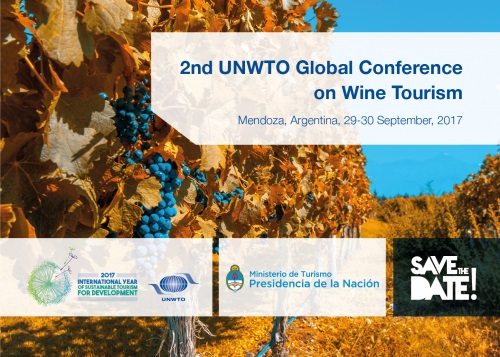
Argentina’s Mendoza to host 2nd UNWTO Global Conference on Wine Tourism
World Tourism Organization (UNWTO) and the Ministry of Tourism of Argentina are pleased to announce that the 2nd UNWTO Global Conference on Wine Tourism will take place on 29-30 September, 2017 in Mendoza, Argentina.
Following the success of the 1st edition, which took place in the Kakheti Region, Georgia, in September 2016, this upcoming edition will be held in the Province of Mendoza. This region, known as the heart of Argentine winemaking, accounts for 70% of the national production of wine and about 85% of the bottled wine sales. The identity of Mendoza is strongly linked to wine and it is an ideal venue offering participants the opportunity to experience firsthand a variety of wine tourism projects, linking both the public and private actors of the tourism and wine sectors. Against the majestic backdrop of the Argentinian Andes, Mendoza is located on one of the highest mountain ranges in the world which subsequently produces some of the world’s greatest wines.
Furthermore, as this second edition falls within the framework of the 2017 International Year of Sustainable Tourism for Development, the former will be the core overarching theme of the conference. The International Year aims to support a change in policies, business practices and consumer behavior towards a more sustainable tourism sector that can contribute to the Sustainable Development Goals (SDGs). The link between wine tourism and sustainability also aligns with the 2030 Universal Agenda for Sustainable Development and the SDGs. In that respect, the Conference will be dedicated to strengthening the relationship between sustainability and wine tourism, highlighting the valuable role of wine tourism on the sustainable development of tourism destinations.
The Conference will include working sessions taking place in wine tourism venues throughout the province, giving all participants the opportunity to further explore the topics addressed in the sessions and interactively share and exchange ideas. Participants will have the opportunity to participate in a technical visit of one of the listed wineries and participate in workshop following the visit. Said workshop will explore the concepts introduced during the morning sessions in a pragmatic way. Ultimately, the groups will participate in an interactive session to draw the most relevant conclusions that will later be incorporated into the conference brief.
Share this:
